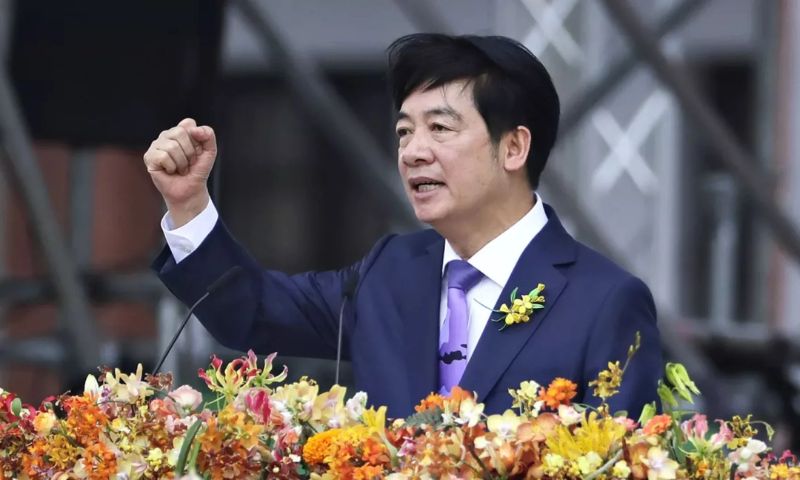TAIPEI, Taiwan: In a recent interview with Taiwanese media, Taiwan President Lai Ching-te challenged China’s justification for its claims on Taiwan, suggesting that if China’s motive was truly about territorial integrity, it should also reclaim lands ceded to Russia in the 19th century.
Lai’s comments highlight the escalating tension between Taiwan and China, as well as the complex historical context surrounding territorial claims.
China regards Taiwan as part of its territory and has not renounced the use of force to achieve unification. However, Taiwan’s government firmly rejects these claims, asserting that only the island’s people have the authority to determine their future.
During his interview, Lai referenced the 1858 Treaty of Aigun, an agreement in which the Qing dynasty ceded a large area of land in the Russian Far East to the Russian Empire. This treaty, along with the subsequent Convention of Peking, is seen by China as part of a series of “unequal” treaties imposed by foreign powers during a period of weakness.
Lai argued that if China’s intentions regarding Taiwan were genuinely about territorial integrity, it would address historical grievances related to these treaties, such as reclaiming land from Russia.
“If it is for the sake of territorial integrity, why doesn’t it take back the lands occupied by Russia that were signed over in the Treaty of Aigun?” Lai questioned, suggesting that the absence of such action implies that China’s motivations for annexing Taiwan are not rooted in territorial claims.
China’s Taiwan Affairs Office has not responded to Lai’s statements, but the Chinese government maintains that Taiwan has been an integral part of its territory since ancient times. Taiwan’s historical ties also complicate the situation: Taiwan was ceded to Japan in 1895 under another “unequal” treaty and returned to Chinese sovereignty after World War II. The Republic of China government, which retreated to Taiwan after losing the Chinese Civil War to the communists, continues to govern the island.
Lai further contended that China’s real objective is to alter the international order and assert regional hegemony. According to him, China’s ambitions extend beyond territorial disputes to challenging the rules-based international system, particularly in the Western Pacific.
























